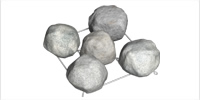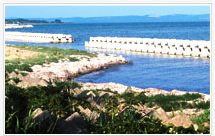



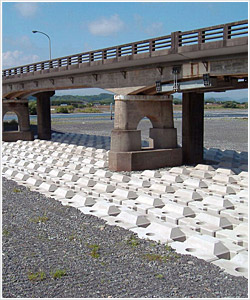
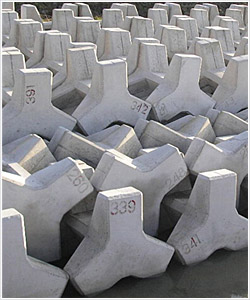
The strong interlocking of the legs prevents blocks from being scattered and lost, for a breakwater block that is highly stable against wave forces.
With a large void ratio of 60%, these blocks offer high cost performance.

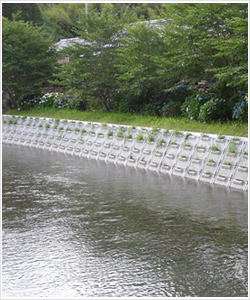
These steep-slope riverbank protection blocks feature projecting parts that allow persons to climb up or down them and also allow the planting of vegetation.
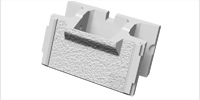
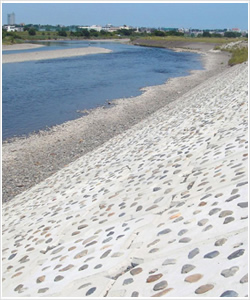
These gentle-slope riverbank protection blocks are produced on-site and the surfaces are covered with stones from the river.
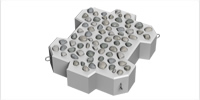
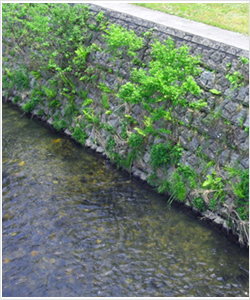
These steep-slope riverbank protection blocks can be used to plant vegetation, and because they are stacked flat they offer excellent workability.
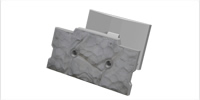
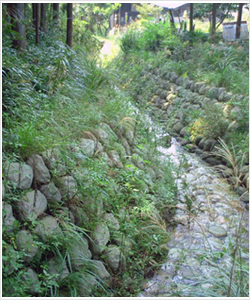
These steep-slope riverbank protection blocks are artificial stones that appear like stacked natural stones, for improving the landscape.
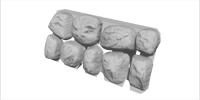
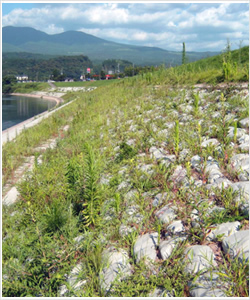
I-REN are made of artificial stones that look very close to natural stones, and are used in riverbank protection work.
With I-REN, the block structures interlock with one another, preventing artificial-looking straight lines.
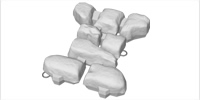
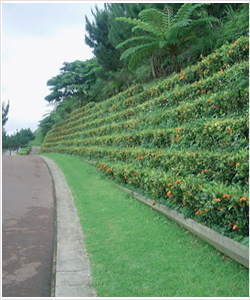
RYOKKA are large stacking blocks that function both as a retaining wall and to green the slope.
RYOKKA can also be used to green the cut surface of bedrock where vegetation cannot ordinarily grow.

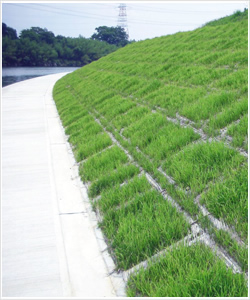
The center part of each block includes a large space for vegetation, allowing these gentle-slope riverbank protection blocks to be used for greening.
The large size of these blocks results in excellent workability and cost performance.
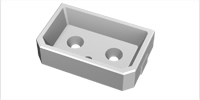
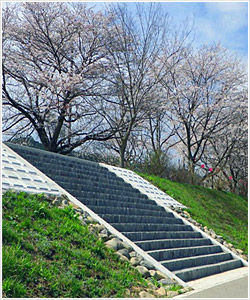
These riverbank protection blocks utilize a stair shape with consideration for water amenity.
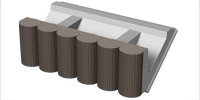
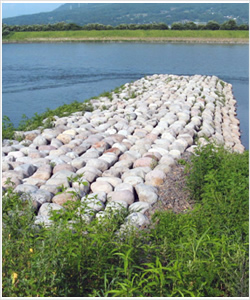
TIE ROCK is a construction method which uses a special link fitting to join natural stones together, and is used for riverbank protection work and foot protection work. Because TIE ROCK is composed of natural stones, this method is excellent for preserving the landscape and the ecological system.
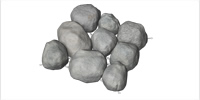
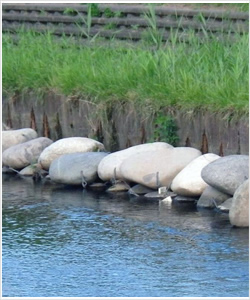
TIE ROCK T-type is a standing unit of joined natural stones. It can be installed by simple piling without shaping the ground surface in advance.
With this method it is also possible to reuse relatively large stones that are excavated during on-site construction.
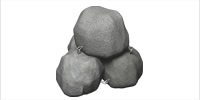
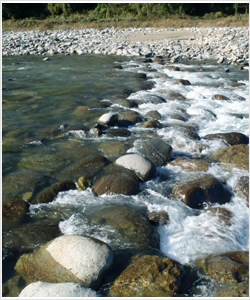
This is a construction method for riverbed protection and foot protection using 100% natural stones, in which natural stones are formed into a cross-shaped unit.
It is possible to reuse stones excavated during on-site construction work as the filling material, for excellent cost performance and an attractive landscape.
